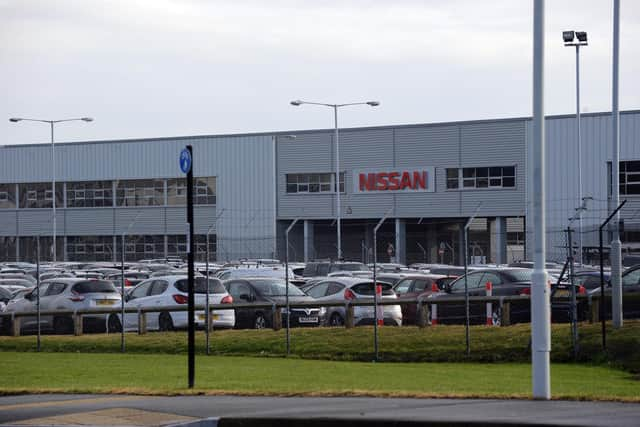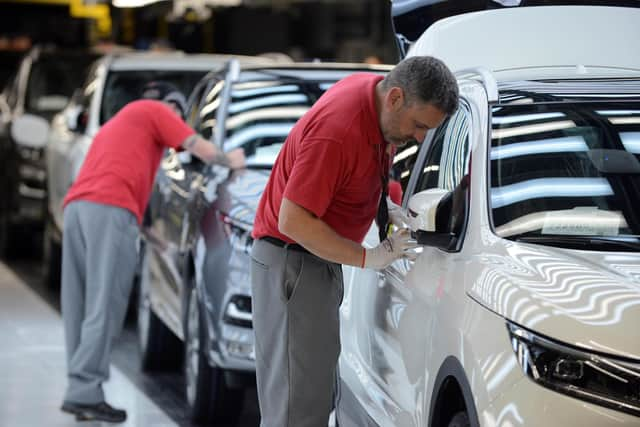Sunderland Nissan plant hands over PPE protective aprons project to North East prison
and live on Freeview channel 276
Over the last three months, the car giant’s Sunderland factory have produced half a million aprons for key workers during the coronavirus pandemic
A team of 57 volunteers made the aprons, which have been supplied to more than 100 healthcare trusts and care homes across the North East region.
Advertisement
Hide AdAdvertisement
Hide AdNow Nissan has announced that the project is being handed over to HMP Northumberland.


Alan Johnson, Nissan's vice president, manufacturing, said: "I'm extremely proud of the way the team at the plant answered the call to produce PPE for our frontline workers.
"Producing more than half a million aprons in such a short period of time demonstrates the skill, ingenuity and dedication of our team at the plant."
With both vehicle production lines now back in operation, Nissan said it has donated equipment used to make the aprons to the jail in Acklington.
Advertisement
Hide AdAdvertisement
Hide Ad

Once up and running, the prison team hope to initially produce 40,000 aprons each week.
Nissan began producing aprons in April this year following a request from the Royal College of Nursing and the Unite union for UK manufacturers to help with the unprecedented demand for PPE.
According to Nissan, it took a team of volunteers at the Washington plant just eight days to design and build a bespoke system to manufacture the plastic aprons.
The Sunderland plant has also helped supply visors to the NHS.
Advertisement
Hide AdAdvertisement
Hide AdThe initiative was inspired by the efforts of four brothers, two of whom work at Japanese manufacturer’s Technical Centre, in Cranfield, Bedfordshire, who started making face guards from home with their own 3D printers.
Samantha Pariser, director at HMP Northumberland, said: "Not only is it great to be giving back to local and regional NHS Trusts and care homes, but it's also a fantastic opportunity for our residents within the establishment to learn new skills which will help them once they have been released, while also decreasing the likelihood of re-offending."